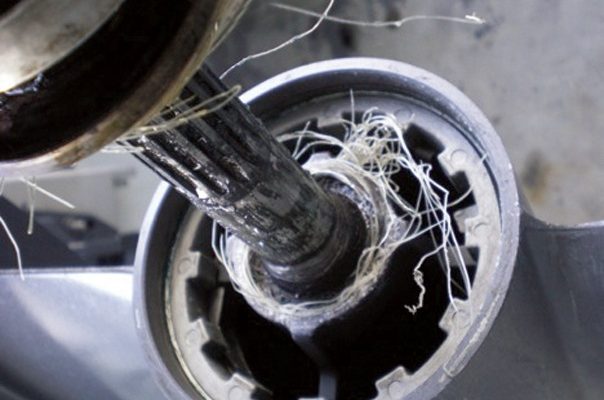Although today’s marine engines are extremely reliable, they have a tougher life than most automotive motors. They have to operate at higher RPMs and work harder to produce the results a boat owner expects. Because they work so hard, they need care and attention — in many cases more so than you would lavish on your daily driver. The good news is that performing preventative maintenance is not complicated and is considerably less expensive than some repairs that may end up as a result of poor maintenance.
Bad Fuel & Filters
One of the most common issues a marine engine can suffer is poor performance (or failure to run at all) due to fuel contamination and degradation. Ethanol in much of today’s fuel can be blamed for a bevy of engine malfunctions. Fuel containing Ethanol has a limited shelf life and, as a result, can separate out in your tank. Because of its high water content, you may find you have water in the bottom of your fuel tank — right where the pickup draws the fuel to your engine.
Steve Paul, the curriculum director at Mercury University, praises the use of quality fuel additives to help avoid these issues and suggests using non-Ethanol fuel if at all possible. If you are using fuel with Ethanol, quality additives such as those offered by outboard manufacturers and others can help elevate some of these issues. Paul recommends using fuel stabilizers as well as treatments and points out that fuel-related issues are generally not covered under the manufacturer’s warranty, so it is important the owner takes preventative measures.
David Meeler, product information manager, and Ry Landry, product information specialist for Yamaha Marine Group concur that bad fuel is one of the most common problems affecting otherwise perfectly functioning motors. They, too, recommend treating the fuel and also suggest using a decarbonizing agent such as their Ring Free Plus product.
They suggest that another way to help avoid fuel issues is to run the correct filters and change them as recommended by the manufacturer. You should replace the filters and not just dump the contents and screw the filter back on. Doing so can release trapped particles that can then be drawn in to the motor. It is also important to replace the under-cowling filters at the required intervals to provide better protection to the fuel system. Check your owner’s manual for the location of these filters and service times.
Maintain & Inspect
Following the manufacturers maintenance schedules and procedures can and will avoid many issues. Paul emphasized the importance of this and explained “Mercury performs factory maintenance for a major conglomeration that uses our product. With this maintenance they have numerous engines with over 10,000 hours of run time.” These engines are proof that even with constant use, if they are maintained as recommended, there will be fewer issues and greater reliability.
Meeler and Lanry pointed out that there are numerous other issues that can be avoided, and doing a walkaround inspection just as a pilot does prior to flight can reveal potential issues. Do things like:
- Pulling your prop and checking for fishing or other lines that might cut into seals and allow water to enter gear cases;
- Checking to see if you have the right battery hooked up to your motor (using a starting or hybrid battery rather than a deep cycle) and checking to make sure the connections are tight (with no wing nuts);
- Checking your propeller for dings or cracks to help avoid engine troubles down the road and ensure proper performance.
They also point out that automotive oil should never be used in today’s four-stroke motors, as they rev higher constantly and have to work harder than a car engine typically does.
Today’s motors are a big investment, and as such it is important to follow manufacturer’s maintenance schedules and recommendations. If you want to learn more about how to check over your engine and what needs to be done to keep it in top shape, you can view important information and even download PDF of maintenance tips at your engine manufacturers’ respective website.
By being proactive, you can avoid a spoiled day on the water, disappointed passengers and potentially costly repairs.
[author] [author_info]Glenn Hayes is a regular contributor to HeartLand Boating magazine[/author_info] [/author]



